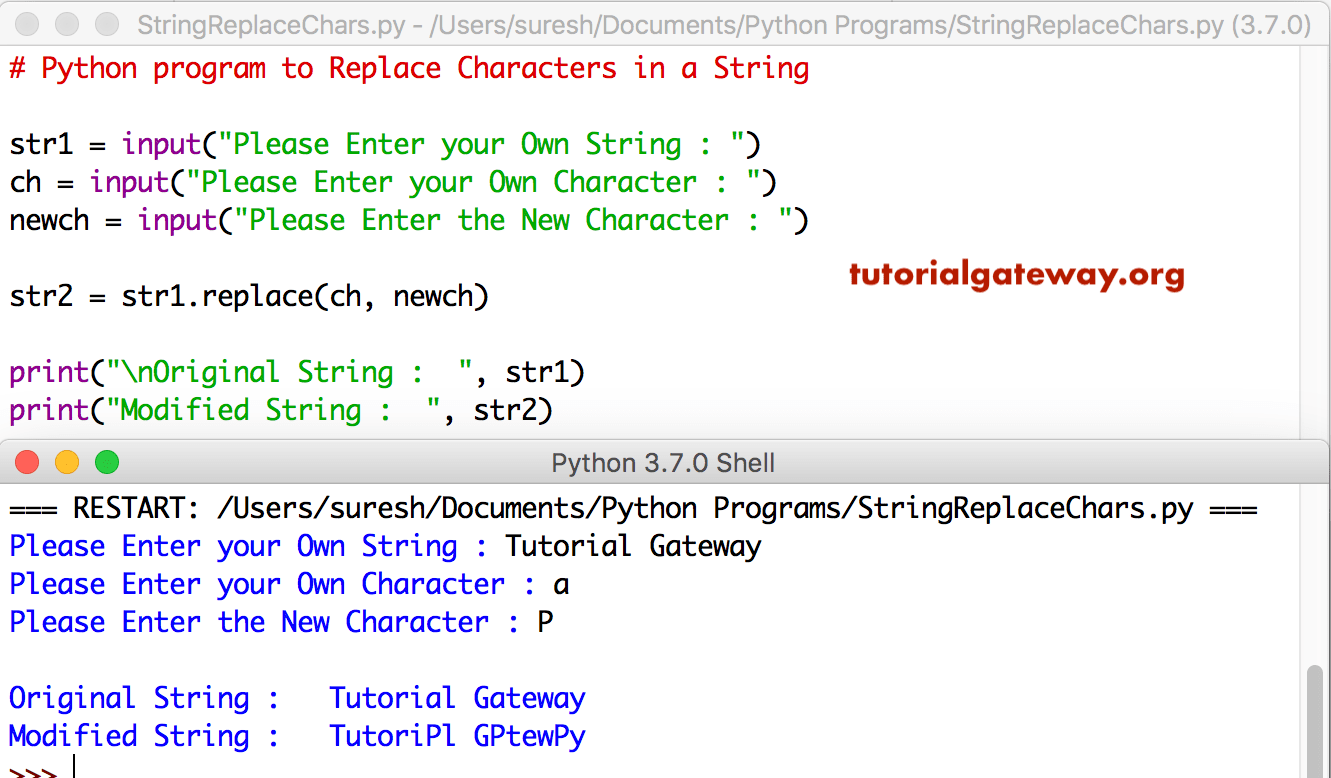


Now, you replace both appearances of the string ‘Python’. Only the beginning of the string matches the regex pattern so you’ve got only one substitution.Īgain, you can use the re.MULTILINE flag to match the beginning of each line with the caret operator: > re.sub('^Python', 'Code', 'Python is \nPython', flags=re.MULTILINE) > re.sub('^Python', 'Code', 'Python is \nPython') You can use the caret operator to substitute wherever some pattern appears at the beginning of the string: > import re The re.sub(pattern, repl, string, count=0, flags=0) method returns a new string where all occurrences of the pattern in the old string are replaced by repl. The second output is the list of three matching substrings because the string ‘Python’ appears three times at the beginning of a line. The first output is the empty list because the string ‘Python’ does not appear at the beginning of the string. > re.findall('^Python', text, re.MULTILINE) Here’s an example showing both usages-without and with setting the re.MULTILINE flag: > import re You can specify that the caret operator matches the beginning of each line via the re.MULTILINE flag. For example, you may want to find all lines that start with ‘Python’ in a given string. However, you may want to match at the beginning of each line. So if you’ve got a multi-line string-for example, when reading a text file-it will still only match once: at the beginning of the string. The caret operator, per default, only applies to the start of a string. But in the next example, it does: > re.findall('^PYTHON', 'PYTHON! PYTHON is fun')Īlthough there are two occurrences of the substring ‘PYTHON’, there’s only one matching substring-at the beginning of the string.īut what if you want to match not only at the beginning of the string but at the beginning of each line in a multi-line string? In other words: Python Re Start-of-Line (^) Regex In the previous example, this doesn’t make any difference. The caret at the beginning of the pattern ‘^PYTHON’ ensures that you match the word Python only at the beginning of the string. The findall(pattern, string) method finds all occurrences of the pattern in the string. > re.findall('^PYTHON', 'PYTHON is fun.') For example, this is useful if you want to ensure that a pattern appears at the beginning of a string. You can use the caret operator ^ to match the beginning of the string.
#PYTHON REGEX MATCH EXAMPLE CODE#
Related article: Python Regex Superpower – The Ultimate Guideĭo you want to master the regex superpower? Check out my new book The Smartest Way to Learn Regular Expressions in Python with the innovative 3-step approach for active learning: (1) study a book chapter, (2) solve a code puzzle, and (3) watch an educational chapter video.


 0 kommentar(er)
0 kommentar(er)
